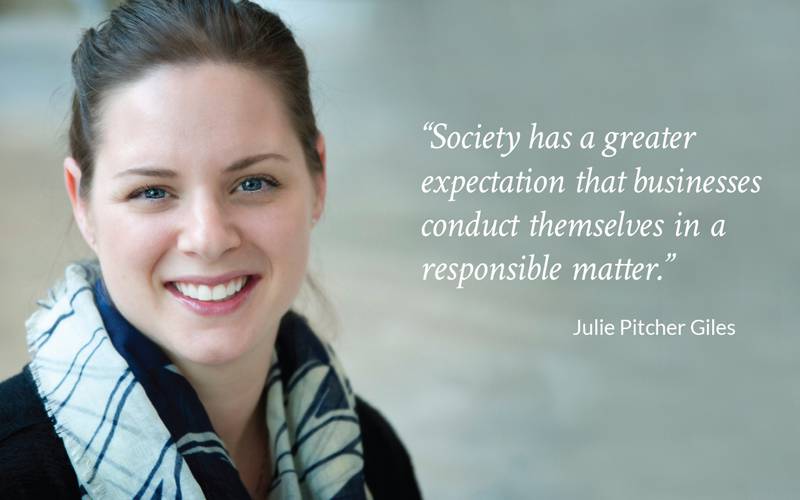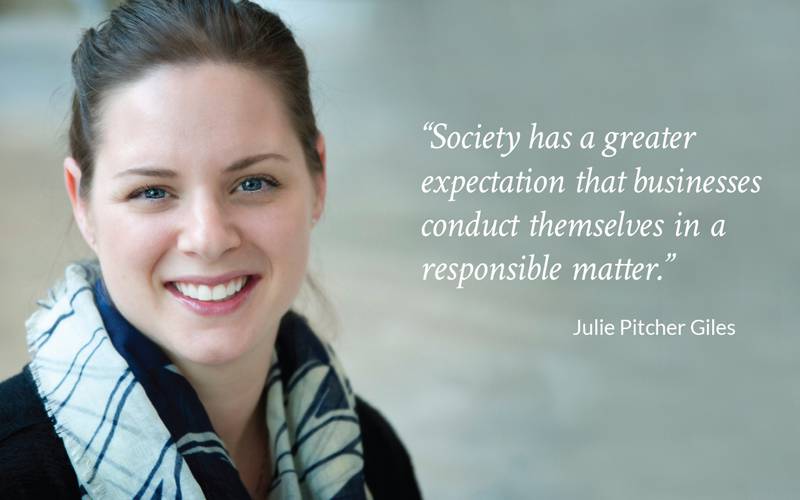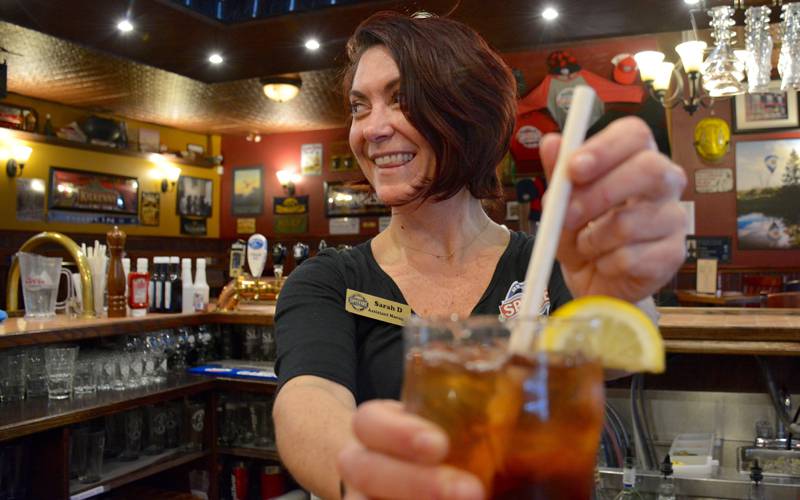 Contributed
Contributed
EDITOR’S NOTE: This is the fifth in a five-part series.
In Part 5 we look at the importance of corporate responsibility in Atlantic Canada.
Read
Corporate Social Responsibility (CSR) is a deciding factor in where consumers buy, and job candidates apply. Simply put, CSR is the way in which businesses take responsibility for their social and environmental impact. According to researchers in Atlantic Canada, companies that have CSR practices embedded in the core of their business are more profitable and attract the best talent.
There are several factors that contribute to a good CSR approach. Let’s take a closer look at the values-led, purpose-driven areas that are driving success.
Sustainability
Dr. Peggy Cunningham is a professor and the R.A. Jodrey Chair in Commerce at Dalhousie University. She says sustainability is high on the list.
“If we don’t start doing something about sustainability and reversing climate change, we are all going to be in trouble,” says Cunningham. “Companies need to continue to reduce waste, produce goods with more sustainable materials, source in more sustainable ways and have good recycling programs within companies.”
Progressive workplace practices
Cunningham also says good responsibility and sustainability starts internally by treating employees well and having forward-thinking policies. One element to achieving success is adapting to the needs of a multigenerational workforce.
Meghan Gardner agrees. She is an employment lawyer and VP of organizational effectiveness with RSA, which employs approximately 800 people in the Atlantic region.
She says employees are looking for companies with flexible working arrangements, diversity and inclusion policies, community connection, choices in their compensation and benefit packages, and cross-training.
Gardner notes there are practical implications for companies that don’t move forward in these areas.
“A traditional rewards package won’t be attractive to a really diverse workforce,” she says. “A company’s ability to manage this – flex working and offer alternative work arrangements – will afford them sustainability. Inability to do that will absolutely limit access to good talent.”
Flexibility is important to Anita Carroll. She is owner/operator of Posie Row and Co., a retail store in downtown St. John’s, N.L. She says flexible scheduling has helped her business.
“It has brought us a better quality of worker. If someone has commitments with family or has health issues, we are sympathetic, and because of that, we get a better quality of worker for sure. I think we’re heading into the direction that work isn’t always about money. It’s about quality of life.”
Diversity and inclusion
Another element of CSR is the implementation of policies that support diversity and inclusion in the workplace.
Dr. Eddy Ng is a Dalhousie Professor and F.C. Manning Chair in Economics and Business. Ng says diversity and inclusion policies are an important aspect of CSR. Companies, big and small, benefit from diversity and inclusion because it expands the potential employee talent pool and provides businesses with a broader range of perspectives and experience.
However, Ng says compared to Vancouver and Toronto, the Atlantic region isn’t capitalizing on the potential these policies bring.
“The people we attract to the region are highly skilled and educated. Part of the problem is removing the stigma or the barrier that exists around hiring an immigrant. The other part of it is being able to recognize how to capitalize or leverage the skills they bring in so that we can better match it to what the world wants from Canada or what we can do for the rest of the world.”
Gardner says RSA works with its staff to build greater awareness and understanding of what diversity and inclusion look like, and provide ongoing training to their employees.
“It’s helpful because it reduces instances of ageism and helps with understanding of disabilities, mental health and gender-based matters,” says Gardner.
The company is also investing in leadership development and training, Gardner adds, to focus not only on actions but behaviours that shape the culture of the organization.
Julie Pitcher Giles is an assistant professor of Business at Memorial University of Newfoundland. She’s currently researching CSR as is relates to small business in rural Newfoundland and Labrador.
“Society has a greater expectation that businesses conduct themselves in a responsible manner,” says Pitcher Giles. “When we think about equity, diversity, there is an expectation that small and big businesses will respond to all of these values-based actions that we see in society.”
Pace of change
Technological advancements affect the social sustainability of a business. Social media, automation, and artificial intelligence are advancing the way employees work with each other and connect with customers. There is more change and immediacy – real or perceived. It’s allowed organizations to be more agile and supported the empowerment of staff to share their ideas and opinions.
Dr. James Barker is a professor and Herbert S. Lamb Chair in Business Education at Dalhousie University.
“As we are confronted with robotics, a more diverse population,” says Barker, “we have to think through what the right value for us is to create and the right way to do it. That ultimately leads us toward the path of social responsibility because it keeps us tuned into what’s happening right now with the people in our organization and the effect we have on our broader community.”
The researchers all agree these internal and external practices lead to attracting the best employees because these individuals want to work for companies that are responsible and sustainable. When you attract the best employees, you see the impact in the performance of the business.
Ronalda Walsh is a St. John’s-based communications consultant. She advises clients on corporate responsibility and reputation management.
Have Atlantic Canadian businesses embraced corporate social responsibility?
Click the photos or headlines to learn how these business’ are helping.





